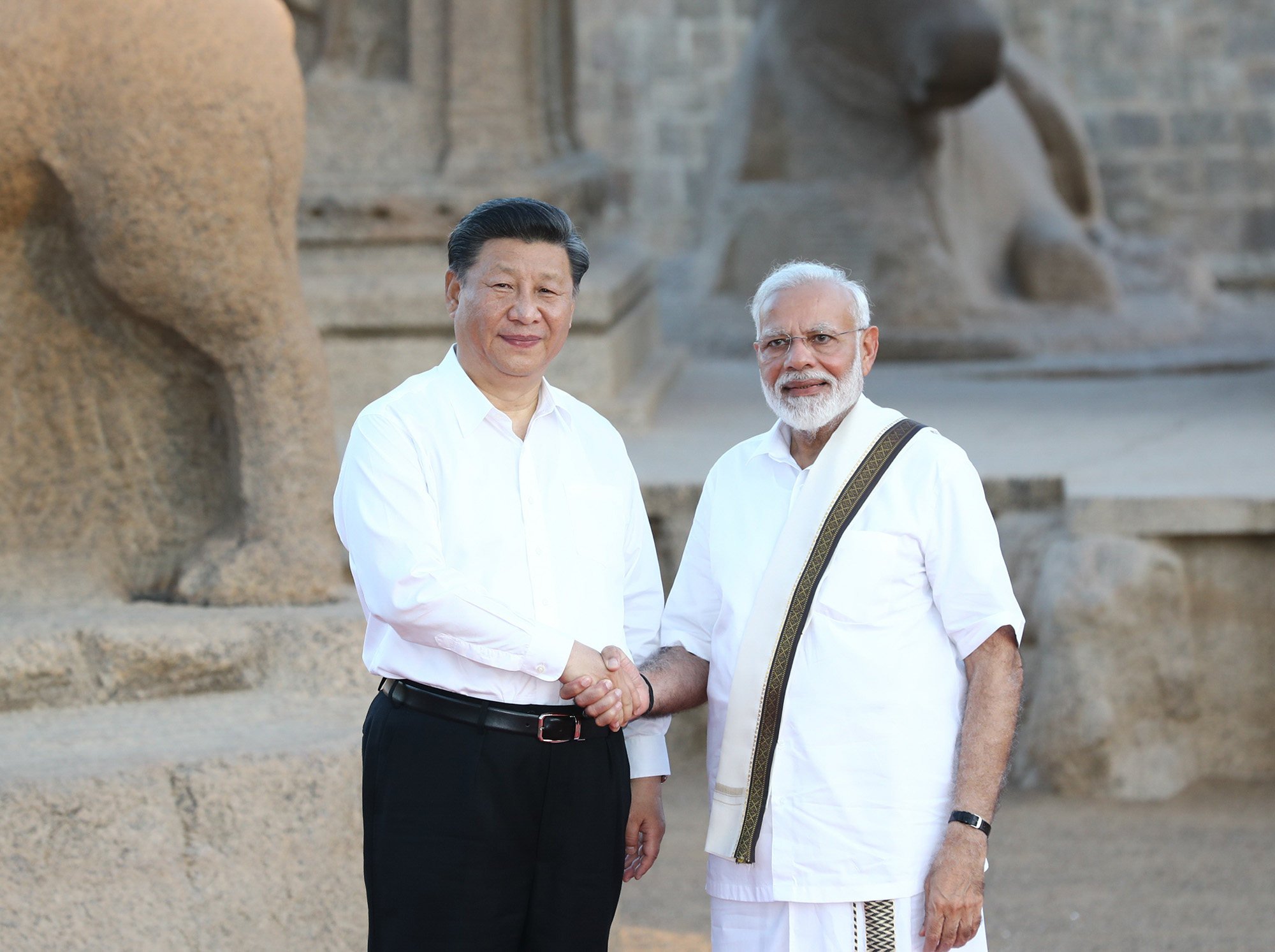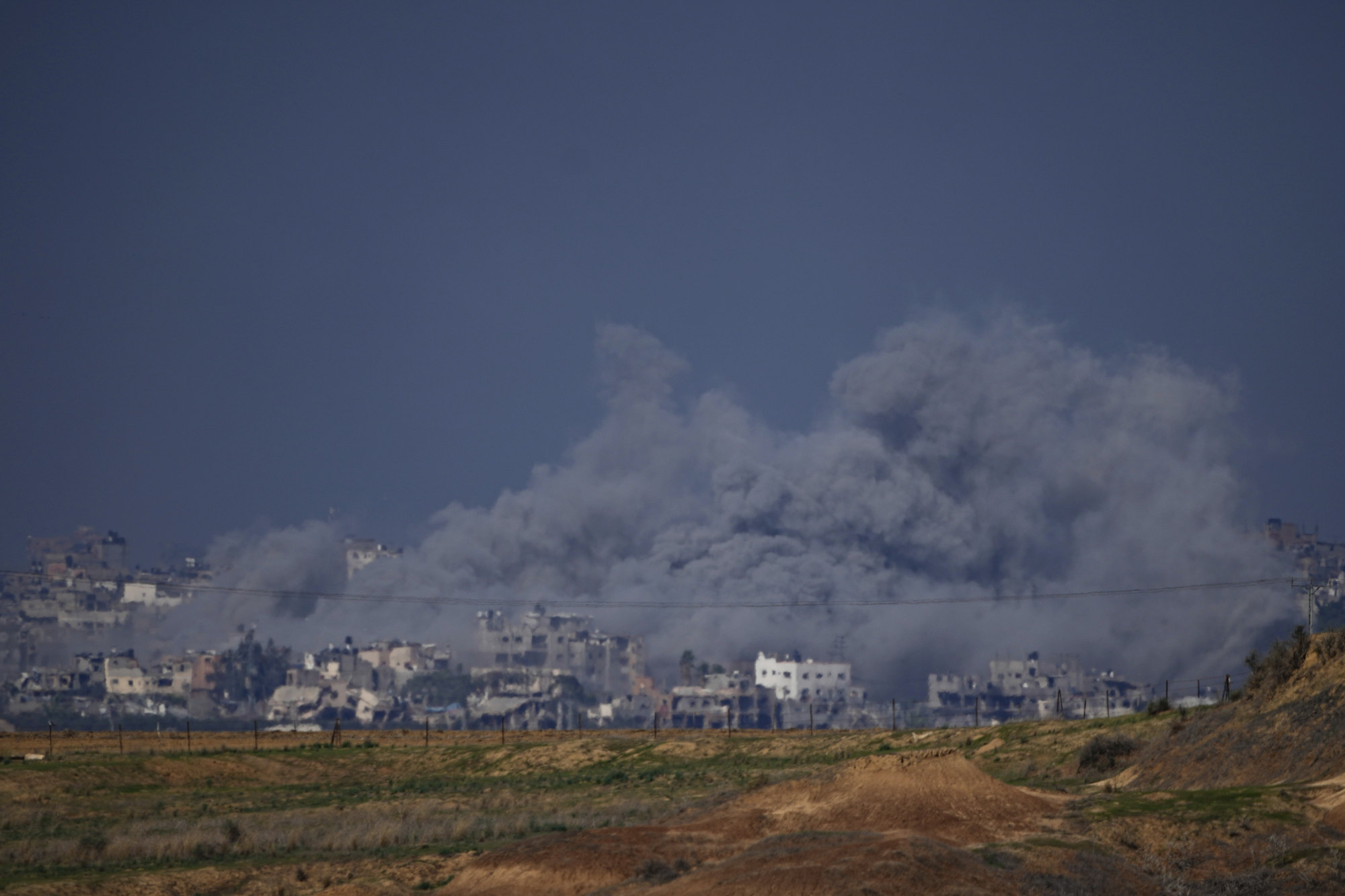India’s aim to surpass China as Global South leader unaffected by its support for Israel
“However, India’s Global South leadership has never been the result of its stance on that one issue,” he said. “New Delhi – correctly, in my view – appreciates that the Global South is an extremely diverse set of nations and that there will be other issues on which to demonstrate India’s leadership.”
India’s Modi slammed for his ‘complete solidarity’ with Israel over Palestinians
India’s Modi slammed for his ‘complete solidarity’ with Israel over Palestinians
At the meeting, India also played a pivotal role in admitting the African Union as a permanent member of the G20.
Earlier this year, India brought together leaders of some 100 developing countries at the Voice of Global South Summit, signalling its desire to foster solidarity among these nations and consolidate its leadership in the Global South.
Indian diplomacy is getting a boost – but it’s still ‘no match’ for US, China
Indian diplomacy is getting a boost – but it’s still ‘no match’ for US, China
Rafiq Dossani, director of the US-based RAND Centre for Asia-Pacific Policy, said Gaza was not a top issue of concern for countries in the Global South as the ongoing war “is not viewed as an existential or ideological threat” to most of them.
“I would imagine that a certain level of pragmatism will prevail,” Dossani said, noting that Global South countries would be more interested in what India or China – the other contender for Global South leadership – can offer.

For instance, they would be asking whether China or India would provide more aid and public goods, such as climate change leadership, Dossani said.
“[They would also ask] which country would provide better regional security and which supports the causes of the Global South at the UN,” he said.
China has heavily invested in infrastructure projects in many Global South countries under its Belt and Road Initiative. It has also tried to promote itself as the leader of the Global South by urging countries to reject “all forms of hegemony” while emphasising their shared history of colonisation.
At a Brics meeting in July, Chinese foreign minister Wang Yi called for the Global South’s greater representation in international reforms and global governance.
To further underscore its ambition, China told leaders at a UN meeting in September that it considers itself part of the Global South, saying it identifies with the goals and challenges of less developed nations.
China, India court Global South in competing bids to lead developing countries
China, India court Global South in competing bids to lead developing countries
According to Dossani, there is “enough space for co-leadership” between China and India given the vastness of the Global South.
China’s attraction within the Global South is mainly material – in the form of capital, technology, and trade – Markey from USIP said.
“Many members of the Global South will question whether Beijing’s policies are aligned with their own. Leadership of the Global South will almost certainly remain contested and shared,” Markey added.
Among these policies, China’s position in the ongoing Israel-Gaza war would be closely examined by the Global South.
“If Beijing takes a more active and effective diplomatic role in the Israel-Gaza dispute, perhaps it will have a more credible claim to leadership on that issue,” Markey said.

China has taken a cautious position on the war, calling for peace and condemning violence against civilians, while also focusing on Palestinian grievances.
Last week, in a position paper submitted to the United Nations on the resolution of the Israeli-Palestinian conflict, China’s five-point proposal includes a comprehensive ceasefire and end to fighting, protecting civilians, providing humanitarian help, as well as strengthening diplomatic mediation and securing a political settlement.
On India’s tilt towards Israel, Dossani said the shift is not a recent one and has been particularly strong in the area of defence.
In the years before Modi became prime minister in 2014, 5 per cent of India’s weapons were imported from Israel, according to Dossani.
Under Modi’s leadership, the figure has jumped to 13 per cent, with India now accounting for over 40 per cent of Israel’s arms exports, Dossani said.
What is the Global South and how is Israel-Gaza war shaping its role?
What is the Global South and how is Israel-Gaza war shaping its role?
“The shift in political support towards Israel was, therefore, likely to happen, given the shift in defence dependence towards Israel,” he added.
The creation of the four-nation network has led India to play a bigger role in regional security, including its involvement in the recent joint Malabar military exercises.
In several other moves seen as countering China’s influence, India has stepped up cooperation with the US in areas including defence, global health, sustainable development, climate, and technology.
“Geopolitically, India is more closely tied now with the US. This, too, has favoured Indian foreign policy shifting towards Israel,” Dossani said.

